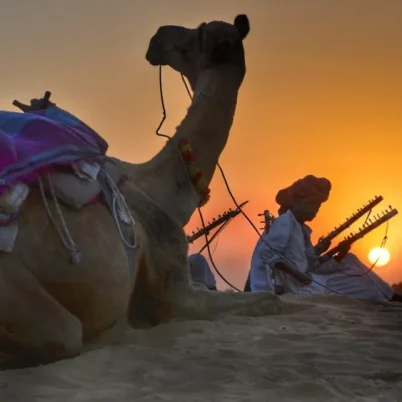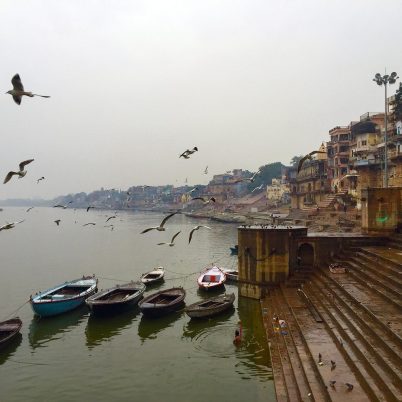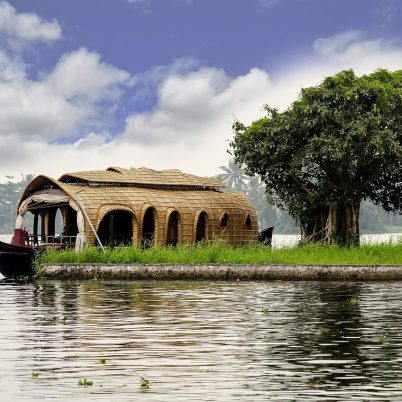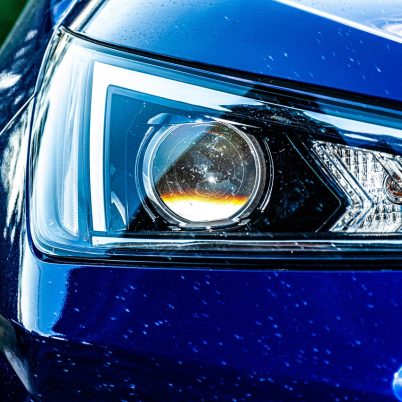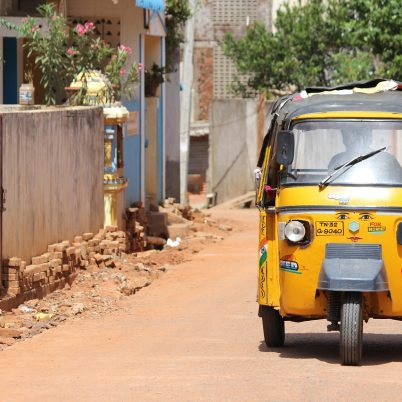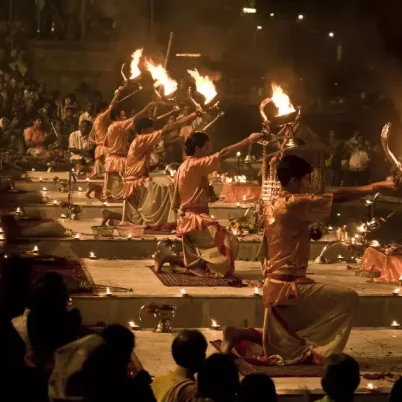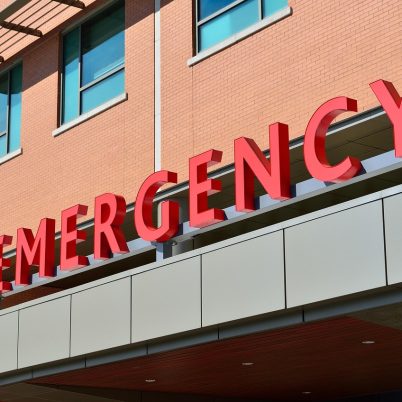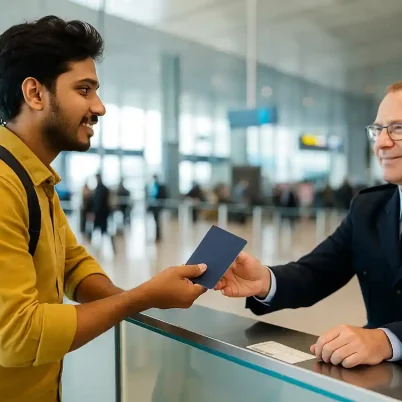
India is a beautiful country with so much to see and do that it can get overwhelming. And yet, many people are apprehensive about visiting this country due to news of crime and unsafe environments. While it is not entirely wrong, most of India is a very safe place to be in. Here is a guide on how to stay safe in India for foreigners, so that there are no second thoughts about visiting this magnificent country!
General safety
- Get travel insurance while traveling to India. It can be very helpful in case of any medical emergencies, loss of luggage, theft, or cancellations.
- Keep copies of your passport, visa, flight tickets, and other important documents separately from the originals. Also keep digital copies of the same on your phone.
- Save emergency numbers in India on your phone: 112 (all emergencies), 100 (police), 101 (fire), 108 (ambulance), 1091 (women helpline), and 1098 (child helpline). Also keep the contacts for your country’s embassy handy.
- India is a crowded country, so stay aware of your surroundings, your belongings, and yourself at all times.
- You might encounter street kids begging for money. They mostly just want some spare change, but if you indulge one person, many flock around. They may also distract you and try to steal your belongings, so be careful.
Scams and theft
- You may encounter quite a few scams during your trip to India, so it is better if you are aware of it in advance. These scams range from fake ID cards and fake bookings to overpricing and cyber-scams.
- Be wary of touts who might try and influence you to spend money. Just ignore them and walk away without reacting.
- Pickpocketing and petty theft is an issue in India. Keep a close eye on your belongings and don’t carry or flaunt too much cash around, especially in very crowded places.
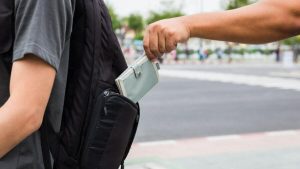
Political tensions
- Political tensions between India and Pakistan are constantly fluctuating, and while it does not affect the larger part of India, some areas in the north, such as Jammu and Kashmir and some parts of Leh and Ladakh, and the Northeast are high-risk for terrorism.
- Naxals are radical communist groups active in some regions of India’s east, south, and central regions. Khalistani extremists also sometimes operate in some parts of Punjab.
- You may encounter strikes or protests around the time of elections and can sometimes become violent. There may be curfews and restrictions due to which transport and some services could be disrupted.
Connectivity
- Phone connectivity in India will make things much easier for you. You can navigate your way using Maps, get reviews, talk to people on call, and check the news for updates. Make sure to get a SIM card or eSIM for your phone on your trip to India.
- Download apps like Google Maps, Ola, Uber, Google Translate, and Whatsapp for easy connectivity and navigation.

Climate and weather safety
- The climate of India differs from one region to another. Most of the country is hot during summers, which can lead to dehydration, sunburns, or heat strokes. Stay safe by applying plenty of sunscreen and drinking plenty of water.
- Monsoons come with their own set of problems, because heavy rains can lead to landslides, flooding, and disruption in electricity, transport and communication. October to February is the ideal time to visit India. Read our detailed guide for the best time to visit India.
- Pack for the weather. Once you have decided when you are traveling to India and which regions you will be exploring, pack accordingly. Take airy, breathable cotton clothes, sunglasses, and caps for summer, umbrellas and raincoats for the monsoon season, and warm woollens for winters.
Health and hygiene
- Take the necessary vaccinations before coming to India.
- Keep a first-aid kit with all your necessary medications. You will find most medicines in Indian pharmacies for a much cheaper rate, but it is better to have your prescribed medicines with you.
Food and safety
- Drink only bottled water. Avoid tap water in India, even for brushing your teeth.
- Avoid ice in your drinks. The ice may be made with tap water, so it is best to avoid ice.
- Street food in India is amazing, but check out stalls that look hygienic. Eat food that has been freshly prepared hot in front of you.
- Avoid eating pre-cut fruits or salads, or raw vegetables.
- Wash your hands frequently and keep a hand sanitizer handy.
- Indian food can be spicy. If you have a low spice tolerance but still want to try out Indian cuisine, introduce spicy food gradually in your diet while in India.
- If you have a sensitive stomach, stick to a vegetarian diet. Vegetarian food in India is delicious, and you won’t miss your meat.
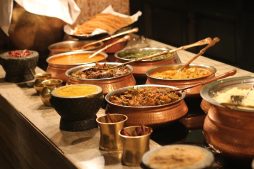
Transport
- India has a high rate of road accidents and deaths from the same. Make sure the vehicle you are traveling in is in good condition. Avoid traveling late at night, in heavy rains, or fogs.
- You will often find vehicles in the wrong lane, so be careful while crossing streets.
- Even as pedestrians, check both sides of the road before crossing, since traffic rules are often lax in India.
- If you are traveling late at night, avoid traveling alone or getting a local cab. Instead, go for app-based cabs on Ober or Ola, which are available in most cities across India. You can also ask your hotel to help with the cab.
- Share your journey details with your contacts who can follow your location.
- Train travel in India is usually safe. However, try to book 1 AC or 2 AC, especially for overnight journeys. Here is a guide for train travel in India.
- Be careful while travelling in trains. Keep your belongings close, since thefts are probable, especially in the non-AC compartments. Do not accept food and drinks from random strangers.
Safety for women
- Dress respectfully. Wear loose, breathable clothes covering your thighs, shoulders, and cleavage. India is quite conservative when it comes to dressing, although you can be slightly relaxed in metropolitan cities like Mumbai, Delhi, and Bangalore and Goa.
- Avoid traveling alone at night and be aware of your surroundings at all times.
- As a woman, there is a good chance that you will be stared or ogled at. It can be uncomfortable, but most of the time it is harmless. However, if you do feel weird at any point, do not hesitate to ask for help from locals or by visiting any nearby police station.
- If you experience eve-teasing, do not hesitate to make a scene. Call out for help or file a complaint with the police.
- Stay in well-known accommodations with good reviews, especially if you are a solo female traveler.
- Try to use special facilities for women as much as possible, such as the women’s compartment in trains, women-friendly accommodations, women-driven vehicles, and more.
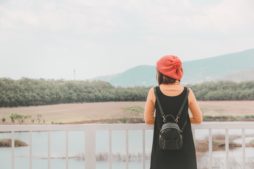
Was this guide helpful? Let us know! At India Someday, we curate personalized trips to India for you based on your needs and preferences. Contact us and together we can plan the perfect trip to India for you!
Frequently Asked Questions
Yes, overall, India is quite safe for foreigners. However, there are a few issues, such as petty crimes, touts, and Delhi belly. Women, especially, need to be mindful about their environment, as in any other country in the world.
Your duration of stay will depend on the type of visa you have. An average tourist visa for most countries will allow you to stay for at least 30 days.
Kolkata is ranked as the safest city in India according to the National Crime Records Bureau. Some other cities that are safe are Mumbai, Chennai, Pune, Hyderabad, and Surat.
Yes, India is as safe for female travelers as many other countries. It is necessary to take a few precautions, such as being mindful of your surroundings, not venturing out alone late at night, and dressing appropriately, especially in rural or religious places.
helping you travel your way
Everything you need to know about India is here We have tried writing about everything you may need help with for your trip to India, If you need help in planning a trip to India Get in touch with us to to plan your trip of a life time.



